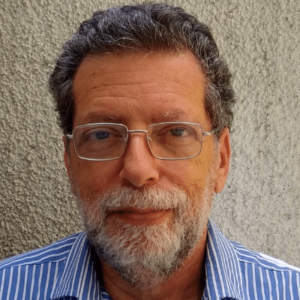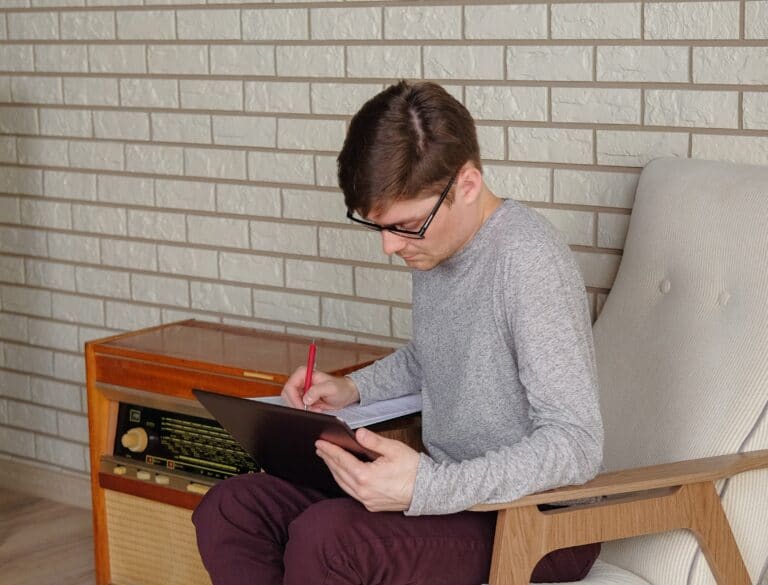A formative internship.
When we were studying for the Ph.D. in Clinical Psychology, we had to conduct two internships of one year each. These internships, to be carried out at authorized Hospitals or Mental Health Services, were the core of our practical training.
For the first one, I chose the Centre for Psychological Services at the University of Ottawa. This institution offered psychotherapy for the population at large at highly discounted rates. Most of the clients were seen by the interns.
As we had nice offices there (the building had been recently restored) we spent most of our day in them, either seeing clients, studying or just talking amongst us.
The load of work was intense given that all our sessions with clients had to be recorded (audio or video). We then had to listen to our tapes and bring the material to group supervisions. For every five hours of therapy we had, we needed to take four hours of supervision. Our days were long but the best part was still to come.
Given that in Ottawa many people worked 9 to 5, most clients of the Centre wanted to come after that hour. The Centre was open, Monday to Friday, from 5 to 9 pm. But the atmosphere was different. There were few professors around, almost no noise and ten or fifteen interns ready to see clients, talk with each other or make an escapade to one of the small and inexpensive restaurants around the University to have dinner.
We learnt plenty during the internship: to work long hours and see several clients; to deal with paperwork and bureaucracy; to talk and discuss cases in supervision and in individual meetings. Most of all we learnt how to be a therapist, how to understand what is affecting the client, how we can help, how to convey this to the client.
As the months were passing, we were honing our clinical skills. Granted that we always learnt something new, indeed we still do, and therefore we had more time to read and to look at the bigger picture.
A surprising finding.
One day I came to the realization that many clients who came to the Centre had ages finishing in nine. We discussed that in our evening conversations and most interns shared that sensation.
Three of us went to see the Director of the Centre to tell him about this phenomenon and to ask him for permission to review the files, without looking at the name of the client, and record the age at intake.
The Director thought about it and two days later called us in. He agreed on several conditions: it should be conducted on a Saturday when no clients were seen and it had to be anonymous.
As we are talking about many years ago, there were no computer records of the clients, everything was paper based and the files were just the typical office style light brown folder holding the material inside.
The three of us went on a Saturday and took several hours to retrieve files one at a time and register the age of the client when s/he attended the first interview. The results were clear. By far, the number that appeared the most was nine. The second one, in order of frequency, was zero. The rest of the numbers were ordered in an apparently random fashion.
Although we were expecting number nine to be the most frequent, we were surprised by the amplitude of the difference to the other numbers. We were also surprised by the appearance of number zero in second place. A logical situation in retrospect, but we admitted that we had not thought about it.
Why do many people start therapy at 19, 29, 39, 49, etc.?
The results were clear. The question then was “why?”. Although this was a casuistic study with no scientific rigor, I believe that the motives for some clients to demand therapy at ages ending in nine are the following:
- People who are not satisfied with their work/relationships/social aspects of their life might feel embarrassment, anger, depression or many other feelings at the notion of turning 20, 30, 40, 50, etc. The previous birthday to those, namely 19, 29, 39, 49, etc., becomes a trigger to the countdown.
- Having a round birthday, e.g., 40, might be unwelcome but at least it might carry the hope of a better decade.
- Having a birthday ending in nine not only signals the advent of the round birthday but also the termination of a decade that does not satisfy them.
The “nine status” might lead some people to apply the handbrake and go through life instead of developing it. There aren’t many redeeming points in being a nine.
Conclusion: being .9 years old is generally positive
The issues that those clients brought to therapy show that our intuition was not off the mark. Many clients feel that they want to do something to change their life. We then see that, besides all the negative connotations that becoming something-nine might have, it has a very positive one.
It brings the client to therapy, s/he has a clear list of issues that they want to look at and change and best of all, most clients have the motivation to do it.
Therapy is never an automatic event, but some apparently negative things that happen to people might open an opportunity to face their troubles, understand them, solve them or make important decisions about their present and their future.






